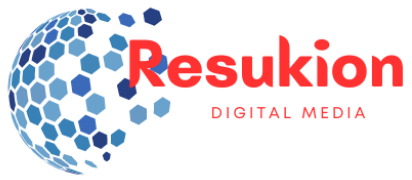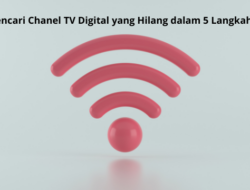Social media has become increasingly important in Indonesia’s digital media ecosystem. With a population of 270 million people, Indonesia is the fourth most populous country in the world and boasts a rapidly growing digital economy. Social media platforms like Facebook, Twitter, Instagram, and WhatsApp are widely used across the country, with millions of users joining each year. In this article, we’ll explore the role of social media in Indonesia’s digital media ecosystem and the impact it has on society and the economy.
1. Social Media and Digitalization in Indonesia
Indonesia has been undergoing a digital transformation in recent years, with rapid growth in smartphone penetration and internet usage. The country’s digital economy is projected to reach $124 billion by 2025, with a compound annual growth rate of 25%. As a result, social media platforms have emerged as key players in Indonesia’s digital media ecosystem. According to a report from the Indonesian Internet Providers Association, there were 10 million new social media users in Indonesia in 2020, reaching a total of 175 million. This represents 65% of the country’s total population, with Facebook being the most popular platform followed by YouTube and Instagram.
2. Social Media as a News Source
Social media has become a primary source of news for Indonesian millennials. Research shows that around 66% of Indonesians get their news from social media, particularly Facebook and YouTube. The younger demographic is less likely to consume traditional news sources like television and newspapers, opting instead to access information through social media. This shift towards social media as a news source has significant implications for the quality and accuracy of information available to Indonesians. While social media platforms allow individuals to share content freely, they are also prone to fake news and misinformation. The proliferation of false information can have serious consequences, particularly during times of crisis – such as the COVID-19 pandemic.
3. Social Media and Politics
Social media has played a significant and sometimes controversial role in political discourse in Indonesia. Indonesia has a long history of social activism and civic engagement, and social media has provided a new platform for Indonesian citizens to share their views and participate in political conversations. In recent years, social media platforms have been used by both political candidates and their supporters to engage voters, particularly during election campaigns. However, social media is also used to spread hate speech, racism, and other forms of online abuse. It’s essential to balance the freedom of expression with the need to protect vulnerable communities from harmful content.
4. The Role of Social Media in Business
Indonesia has a booming e-commerce market, with sales projected to grow from $21 billion in 2019 to $82 billion in 2025. Social media platforms have become essential for Indonesian businesses to reach out to their customers and market their products. Platforms like Instagram and WhatsApp have been instrumental in connecting Indonesian businesses with consumers. Social media offers a cost-effective way for businesses to advertise their products and services and reach a targeted audience. However, it’s important to acknowledge the ethical issues involved in advertising and to develop clear guidelines for responsible marketing practices.
5. The Future of Social Media in Indonesia
As Indonesia’s digital economy continues to grow, the role of social media in the country’s digital media ecosystem will also evolve. With the rise of virtual and augmented reality technologies, social media platforms have the potential to create more immersive and interactive experiences for users. Additionally, the growing impact of social media on individuals’ mental health and wellbeing will require more attention. Social media platforms need to develop effective strategies to protect users from harmful content and provide support for those who struggle with their mental health.
Conclusion
In conclusion, social media has become a vital component of Indonesia’s digital media ecosystem. As Indonesia’s digital economy continues to grow rapidly, social media platforms will continue to play a significant role in connecting people, shaping public opinion, and stimulating economic growth. However, there remain significant challenges to overcome, such as the proliferation of fake news and misinformation, balancing freedom of expression with the need to protect against hate speech and online abuse, and advertising ethics. Through collaboration between government, businesses, and social media platforms, Indonesian society can enjoy the benefits of social media while minimizing its negative impacts on individuals and society as a whole.





Hello, always i used to check web site posts here early in the dawn, as i like to gain knowledge of more and more.